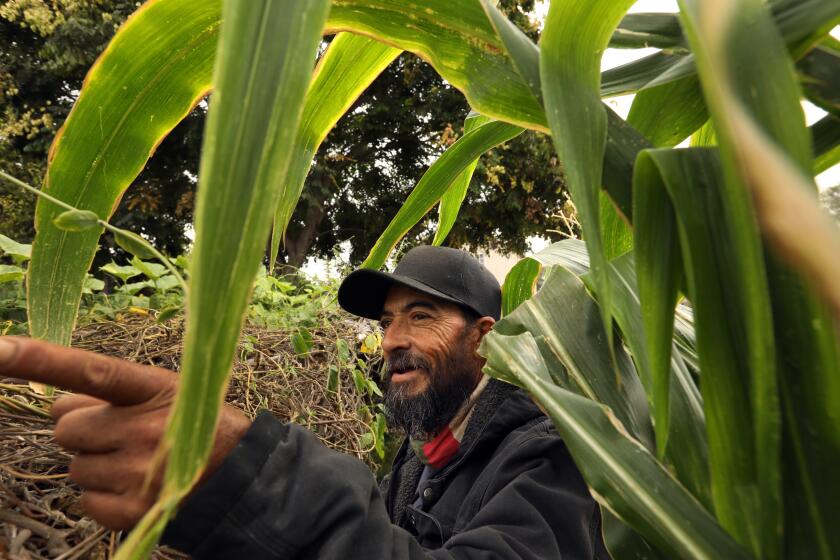On rooftops and under bridges, community gardens will bloom in South L.A.
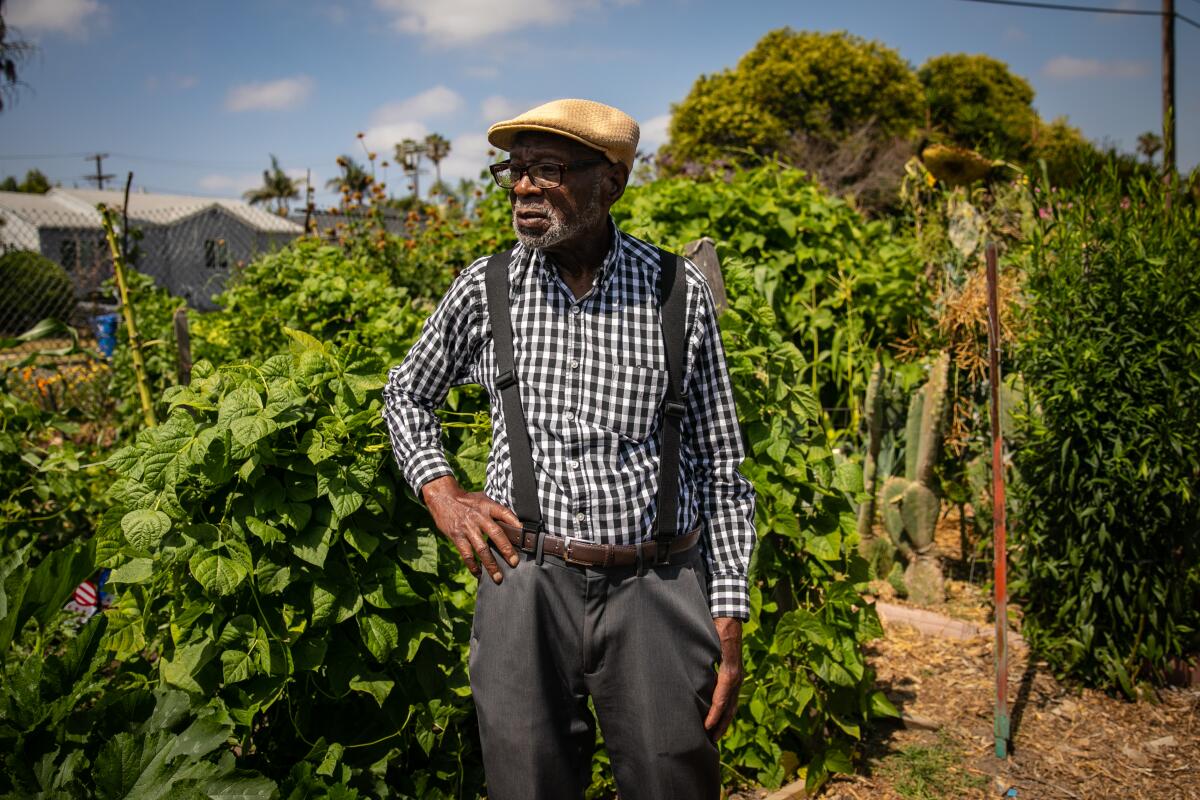
- Share via
In his Crenshaw neighborhood, Assemblymember Isaac Bryan (D-Los Angeles) passes liquor store after liquor store, while fresh fruit and produce are hard to find.
The district he represents was still known as the 54th Assembly District when his predecessor, Sydney Kamlager-Dove, hatched a dream to build 54 urban farms in the area.
“I thought she was joking,” said Bryan, whose district is now the 55th. But Kamlager-Dove’s vision may yet become a reality.
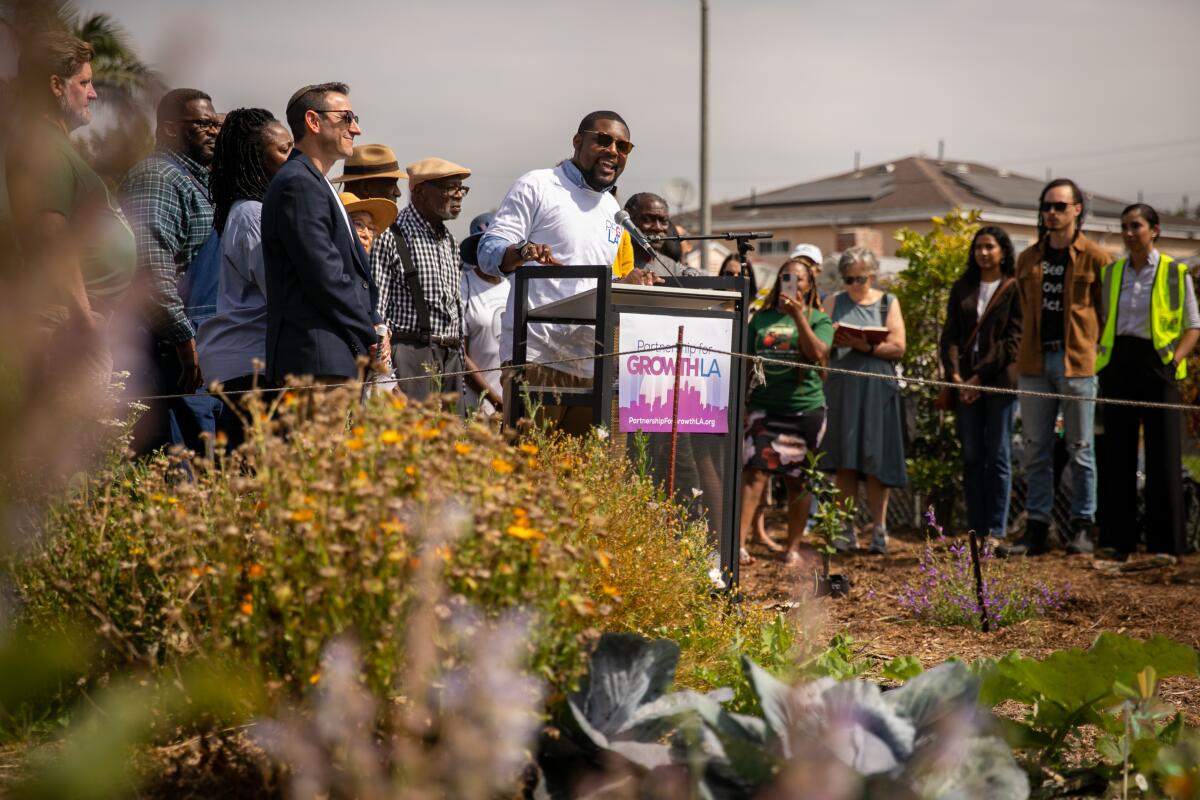
In the early days of the pandemic, the Rev. Eddie Anderson, chief executive of the interfaith Partnership for Growth Los Angeles, was thinking similar thoughts. He called Kamlager-Dove, who is now a U.S. representative, and enlisted her in his new project — a program called Freedom Farms.
On Friday at Good Earth Community Garden in West Adams, as bees swirled from stalks of corn to flowering chard plants, Anderson, Kamlager-Dove and Bryan were among those announcing a $7-million grant from a state budget surplus to jump-start Freedom Farms.
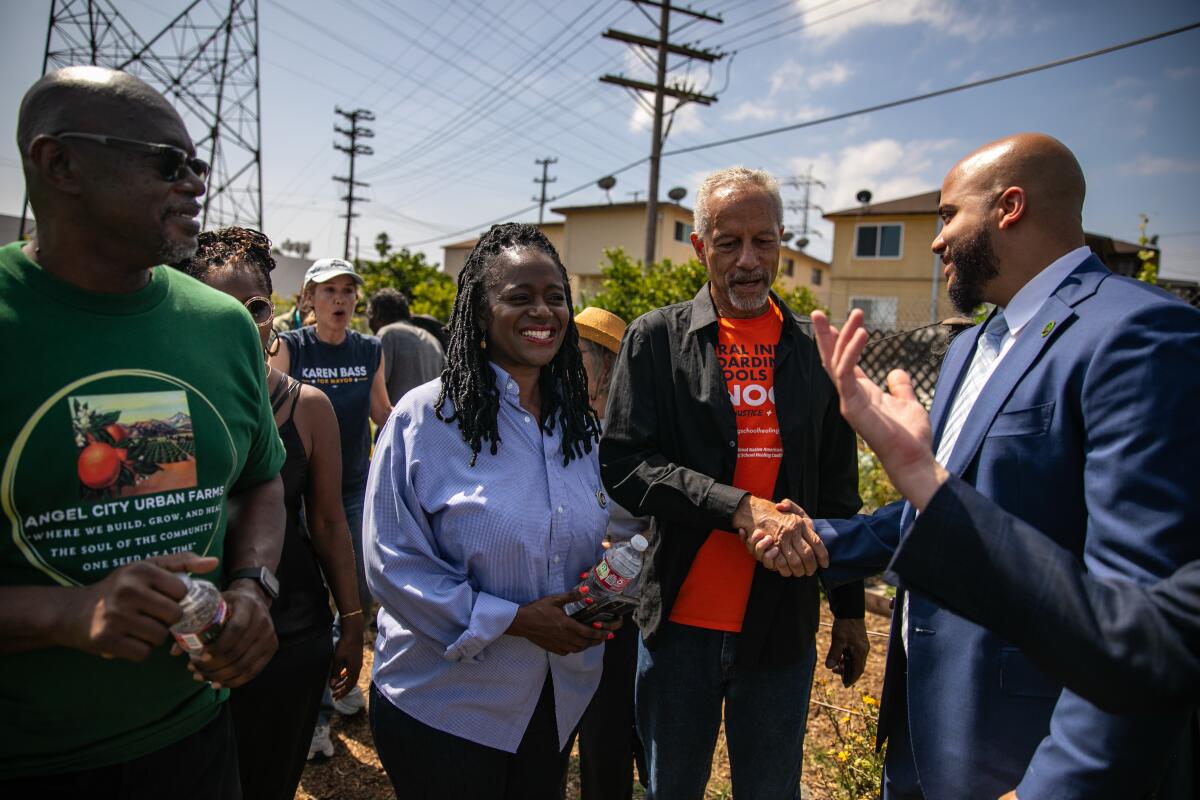
The three-year pilot will involve agricultural experts, nonprofits and businesses in supporting urban gardens across South and West Los Angeles.
The goal in the first year is to plant five new urban farms and invest in 10 existing ones, including Good Earth. Then teams will fan out to other food deserts — places like Bryan’s neighborhood with few fresh food options — with the aim of planting 37 farms over three years.
“We still have too many young people who have grown up on Gatorade and Hot Cheetos because they don’t know what fresh, nutritious food looks like,” Bryan said. “Food is medicine. Food is life. Food is longevity. Food is the future.”
They come to this 11-block strip of land framed by electricity towers to feel the soil between their fingers, to watch the plants grow, to marvel at the orange butterflies, to remind themselves of home.
At-risk youths, formerly incarcerated persons and senior citizens will be among those hired to construct or work in the gardens, which could be planted everywhere from underpasses to the roofs of churches.
“We want you to one day walk into Whole Foods, and you see your product on the shelf,” said Anderson, who with the Partnership for Growth’s president, Rabbi Joel Simonds, will take the lead in running the program.
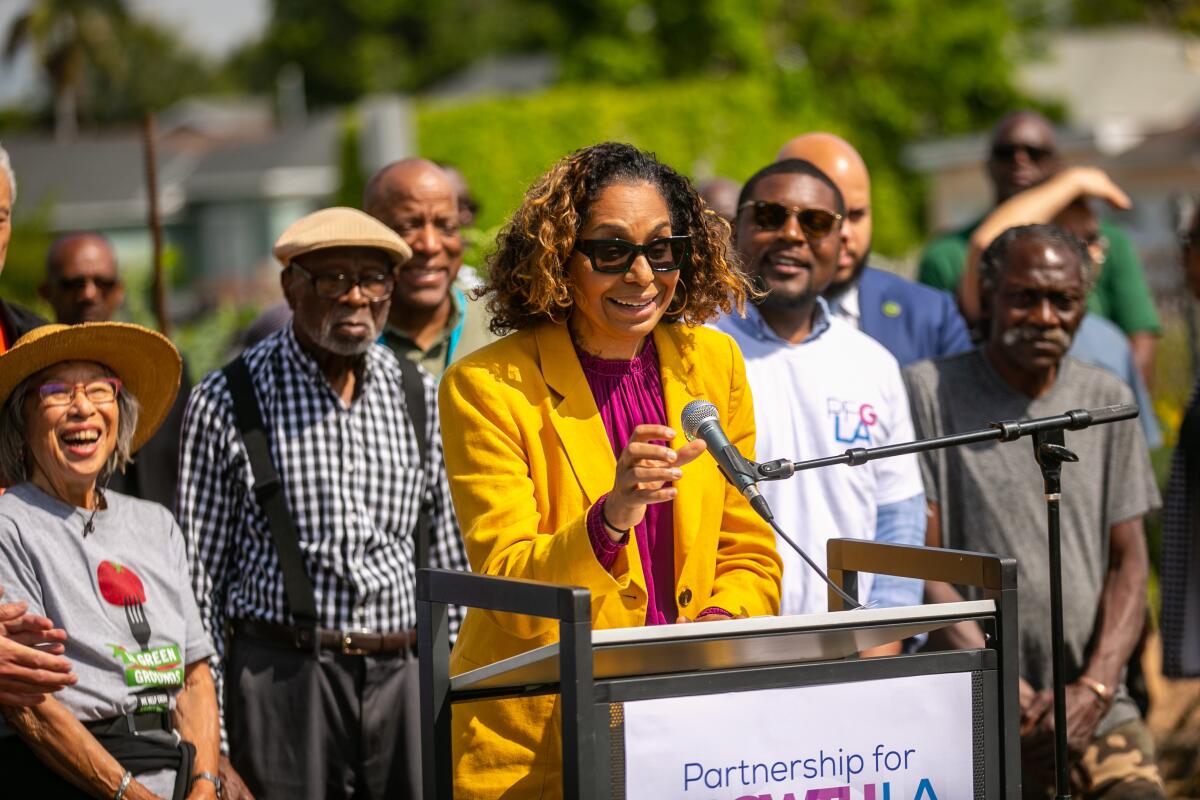
Kamlager-Dove hopes people will take pride in controlling the food they eat, which could help them make choices that improve their health and ultimately reduce the costs of conditions such as obesity and diabetes.
Communities of color and working-class neighborhoods end up with meat and produce that aren’t as fresh as what’s available in affluent areas — in part due to the industrialization of farming in breadbaskets like the Central Valley, she said.
“This is a country that has politicized and has weaponized food,” Kamlager-Dove said. “And we have created an environment where large corporations are dictating what we eat, how much of it we eat and how much we pay to eat it.”
Anderson and Simonds launched their nonprofit community development organization in 2020, during the height of the COVID-19 pandemic.
With the community in crisis, “one of the real touch points was that there was no food,” Anderson said. “We realized that out of the 18 grocery stores that are in South Los Angeles, 10 of them did not sell good fruits and vegetables.”
Considering the “tons” of community gardens that had independently sprouted in the area, Anderson imagined a micro-economy of urban farms inspired by Fannie Lou Hamer, a civil right activist who established the Freedom Farm Cooperative in the Mississippi Delta as a way to empower Black sharecroppers and tenant farmers.
“We believe that if we’re going to bounce back our society, then we have to feed the body before we feed the soul,” Anderson said.
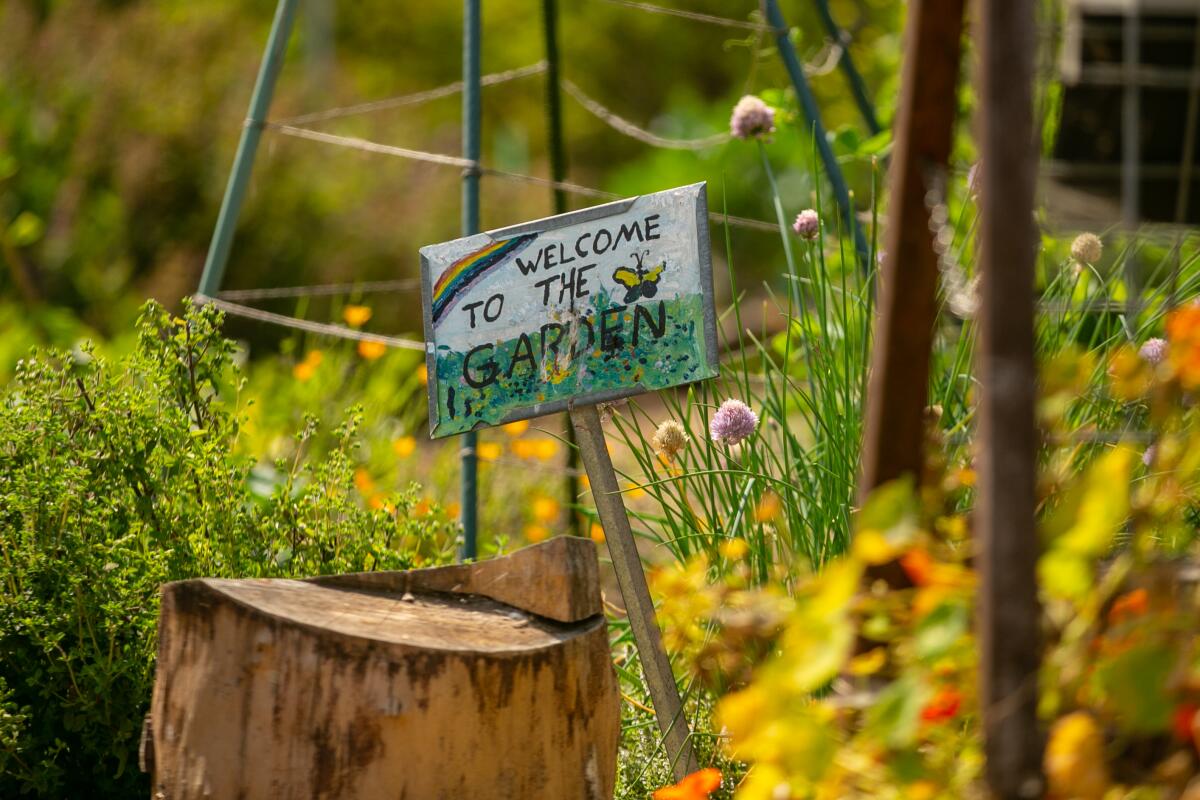
More to Read
Sign up for Essential California
The most important California stories and recommendations in your inbox every morning.
You may occasionally receive promotional content from the Los Angeles Times.
